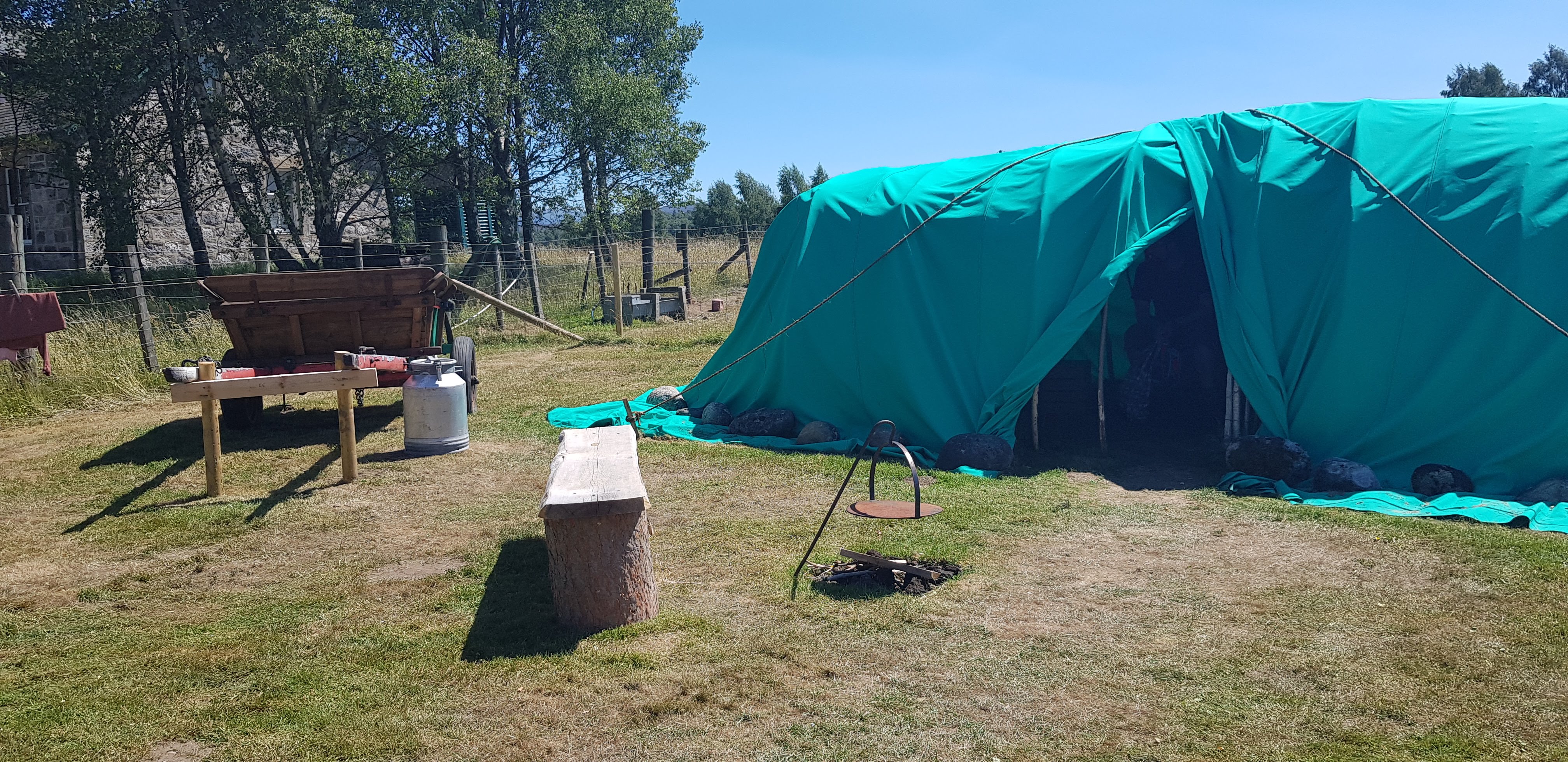This month is Gypsy, Roma and Traveller History Month (GRTHM).
GRTHM aims to celebrate and promote awareness of Gypsy, Roma and Traveller (GRT) history, culture and heritage, and the positive contribution that GRT groups have made and continue to make to society. It also seeks to challenge negative stereotypes, prejudices and misconceptions associated with GRT groups.
Over the next two blog posts, we will raise awareness of the many issues faced by GRT communities in the UK today, and highlight some lesser known aspects of GRT culture and heritage.
Gypsies and Travellers are not a homogenous group
One common misconception is that Gypsies, Travellers and Roma are a homogenous group.
In fact, GRT is a term which encompasses many distinct ethnic groups with their own cultures, histories and traditions.
This includes Romany Gypsies, who today are generally of English or Welsh heritage. Gypsies first arrived in Britain in the 16th Century. The term ‘Gypsy’ was coined due to a common misconception that Gypsies originated from Egypt. However, recent DNA studies suggest that they actually originated from the Indian subcontinent. Some Gypsies may prefer to be known as either English Gypsies or Welsh Gypsies specifically.
Irish Travellers are Travellers with Irish roots, however, a recent DNA study suggests they have been genetically distinct from the settled Irish community for at least 1000 years. Irish Travellers have their own language – Shelta (also known as Cant).
Scottish Gypsies/Travellers are indigenous to Scotland. Their exact origins are uncertain, but it is thought that they may be descended from the Picts, and/or the scattering of the clans following the Battle of Culloden in 1746. Certainly, Scottish Travellers tend to share many of the same Clan surnames – including Stewart, McMillan, McPhee and McGregor.
Scottish Travellers also have their own language – the Gaelic-based Beurla Reagaird.
European Roma are descended from the same people as British Romany Gypsies, and they are Gypsies/Travellers who have moved to the UK from Central and Eastern Europe more recently. Some have arrived as refugees and asylum seekers. While they face many of the same issues as Gypsies, Irish and Scottish Travellers, they are also subject to a number of additional challenges.
There are also other groups that are considered ‘cultural’ rather than ‘ethnic’ Travellers. These include Occupational Travellers such as fairground and circus owners and workers and New Age Travellers – individuals who have chosen a travelling lifestyle for ideological reasons.
Distinct ethnic minorities protected by law
Whilst there are some similarities between GRT groups in terms of lifestyle, economic, family and community norms and values – and certainly in terms of the discrimination and poor outcomes that they experience – there are clear genetic differences between each of the groups.
As such, Gypsies, Irish Travellers and Scottish Travellers are each considered ethnic minorities in their own right and protected as “races” under the Equality Act 2010. Migrant Roma are protected both by virtue of their ethnicities and their national identities.
However, despite this protection, GRT groups are still subject to high levels of discrimination.
‘The last acceptable form of racism’
Indeed, prejudice and discrimination has affected GRT groups throughout history.
In the 16th century, any person found to be a Gypsy could be subject to imprisonment, execution or banishment. Even after anti-Gypsy laws were repealed, discrimination continued. In the 19th and early 20th centuries, it was not uncommon for doctors to refuse to attend to Travellers. And despite Travellers’ strong Christian beliefs, churches would often refuse to bury their bodies within their grounds.
And today, GRT people have the worst outcomes of any ethnic group across a huge range of areas, including education, health, employment and criminal justice. They have the poorest health and the lowest life expectancy of any ethnic group in the UK, and are subject to high levels of racism and hate crime.
GRT groups still face barriers to accessing health services. As part of a mystery shopper exercise by the Friends, Families and Travellers (FFT) charity, 50 GP practices were contacted by an individual posing as a patient wishing to register without a fixed address or proof of identity. They found that almost half would not register them, despite NHS guidance to the contrary.
And while racism towards most ethnic groups is now seen as unacceptable and less frequently expressed in public, racism towards GRT groups is still common and often overt – even among those who would otherwise consider themselves ‘liberal’ or ‘forward thinking’. This had led it to be termed “the last acceptable form of racism”.
The 2015 Scottish Social Attitudes Survey found that over 30% of people in Scotland would be unhappy with a close relative marrying a Gypsy or Traveller, and 34% felt that Gypsies or Travellers were unsuitable as primary school teachers.
Research by Travellers Movement has found that four out of five (77%) of Gypsies, Roma and Travellers have experienced hate speech or a hate crime – ranging from regularly being subject to racist abuse in public to physical assaults.
Prejudice and discrimination against GRT groups is not limited to the public – there is also evidence of discrimination against GRT individuals by the media, police, teachers, employers and other public services.
Even politicians have openly displayed anti-GRT sentiment. In 2017, the Conservative MP for Moray Douglas Ross, stated that he would impose “tougher enforcement against Gypsy Travellers” if he were Prime Minster for the day.
His remarks were widely criticised. Amnesty International’s Scottish director, Naomi McAuliffe, said “When our elected leaders use this sort of blatantly partisan speech, they set a terrible example that only serves to foster further discrimination and prejudice.”.
A lack of sites has led to a ‘housing crisis’
Mr Ross’s remarks reflect another common misconception about GRT communities – that they all live in caravans, purposefully choosing to set up on unauthorised sites.
The truth is that while Gypsies and Travellers have traditionally lived a nomadic life, living in bow tents, wagons – and even caves – over 70% of Gypsies and Travellers no longer live in caravans, having chosen, or being forced for one reason or the other – disability, old age, lack of suitable sites – to move into traditional ‘bricks and mortar’ accommodation.
For those who do still live in caravans, it is widely recognised that they face a ‘housing crisis’ – an urgent shortage of authorised sites to set up on, which threatens their travelling heritage. It is this shortage that drives much of the use of unauthorised sites.
Of those sites that do exist, quality has been raised as a key issue. Many sites can lack even the most basic amenities, and some are sited near recycling plants or in other undesirable locations. Poor conditions and sanitation contributes to poor levels of health, exacerbating existing health inequalities.
Further inequalities
In our next blog post, we will look in more depth at the inequalities that GRT communities face – in health, education and employment. We also highlight work to address these inequalities and raise awareness of GRT communities’ rich cultural heritage.
Follow us on Twitter to discover which topics are interesting our research team.
Share
Related Posts
Supporting residents on the decarbonisation journey: leveraging data for effective retrofit projects
As the drive towards decarbonisation intensifies, the social housing sector’s ability to collect, store and manage vast amounts of data becomes increasingly critical. With a shared goal of creating warmer, carbon-free homes, housing associations’ strategic use of data is essential ....
The recent spikes in energy costs have thrown into sharp focus the challenge of heating our homes. Domestic heating is important, not just for our comfort and wellbeing, but to reduce humidity and prevent condensation. But because traditional heating systems ....
By Donna Gardiner While free school meals (FSM) have been available in England on a means-tested basis since 1944, recent years have seen a renewed focus upon the potential benefits of providing free school meals to all school-aged children. Currently, ....


